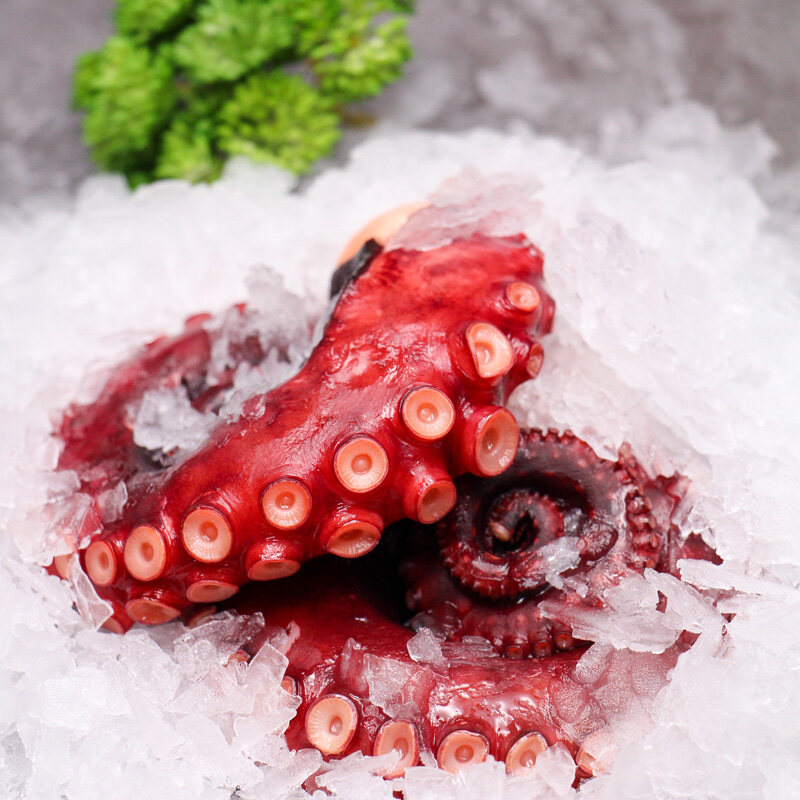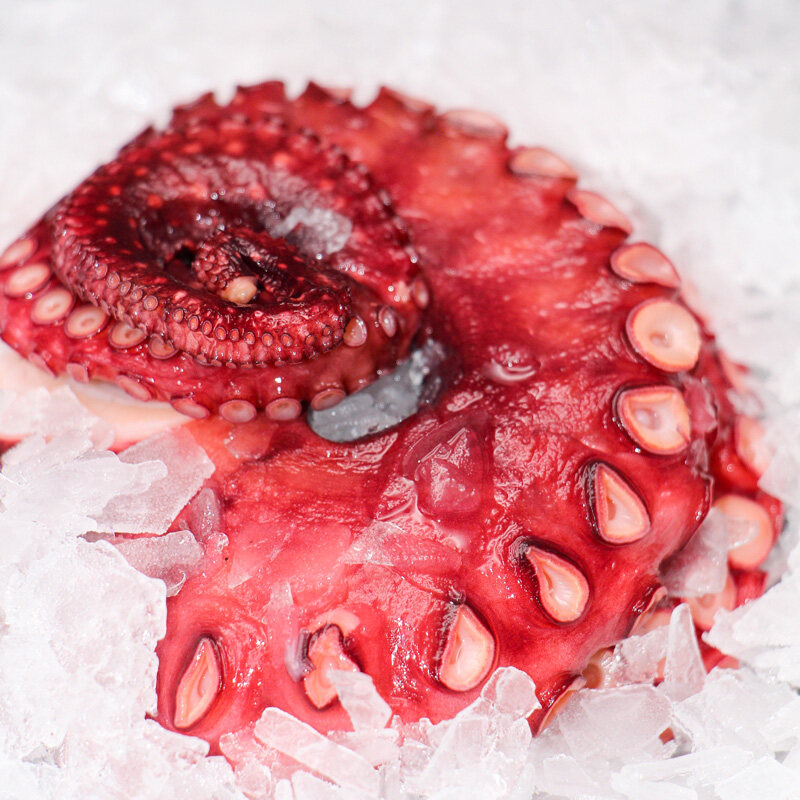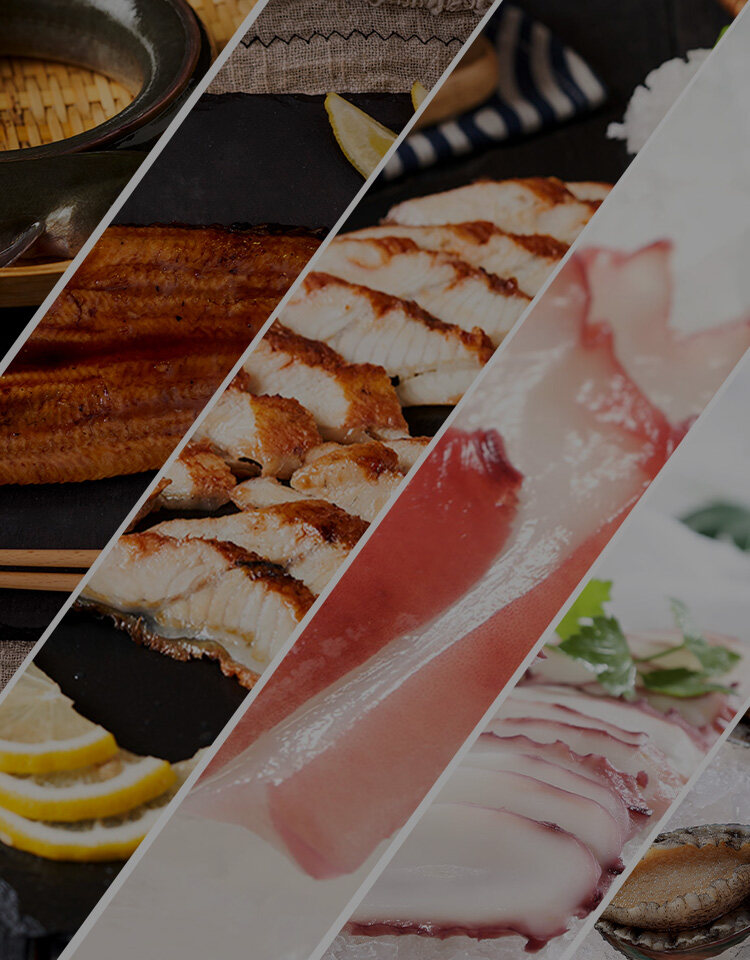Email cannot be empty
Password cannot be empty
checkout as a guest
or
Facebook
Google
Email format error
Email cannot be empty
Email already exists
6-20 characters(letters plus numbers only)
The password is inconsistent
Please enter the email address you’d like your password reset information sent to.
Email format error
Email cannot be empty
Email does not exist
Reset account password
For the account
6-20 characters(letters plus numbers only)
The password is inconsistent
Reset success
Your password was reset. You can log in using your new password.
Login


Frozen Octopus Legs in Mediterranean Cooking: Recipes & Tips
2025-01-17 16:15:09
Frozen octopus legs are a fantastic ingredient to have in your kitchen, especially if you're a fan of Mediterranean cuisine. They offer a convenient way to enjoy the rich flavors and textures of octopus without the hassle of sourcing fresh ones. Here’s how you can make the most of them in your cooking.
Why Choose Frozen Octopus Legs?
Frozen octopus legs are pre-tenderized and can be just as delicious as fresh ones when prepared correctly. They are readily available and can be stored for longer periods, making them a practical choice for home cooks and professional chefs alike. Plus, they are often more affordable than their fresh counterparts.

Preparing Frozen Octopus Legs
Before you can use frozen octopus legs in your recipes, you need to thaw and tenderize them properly. Here’s how to do it:
Thawing
-
Refrigerator Method: Place the frozen octopus in the refrigerator overnight. This is the safest and most gradual method, ensuring even thawing.
-
Cold Water Method: If you need to thaw the octopus more quickly, submerge it in cold water. Change the water every 30 minutes until the octopus is thawed. This method is faster but requires more attention.
Tenderizing
-
Boiling: Bring a large pot of salted water to a boil. Add the thawed octopus and reduce the heat to a simmer. Cook for 45-60 minutes or until tender. To check tenderness, pierce the octopus with a fork—it should slide in effortlessly.
-
Traditional Method: Some chefs swear by the traditional method of beating the octopus against a hard surface to tenderize it. While this can be effective, boiling is generally more practical and consistent.
Recipes
Greek Grilled Octopus
This classic Mediterranean dish is a crowd-pleaser. It combines tender, smoky octopus with bold flavors of lemon, garlic, and oregano.
Ingredients
-
2 lbs frozen octopus legs, cleaned and thawed
-
1/4 cup olive oil
-
4 cloves garlic, minced
-
2 tablespoons lemon juice
-
1 teaspoon dried oregano
-
Salt and pepper, to taste
-
Fresh parsley, chopped (for garnish)
-
Lemon wedges (for serving)
Instructions
-
Prep the Octopus: Thaw the octopus legs if frozen. Clean them under cold running water. Boil them in salted water until tender, then let them cool slightly.
-
Marinate: In a bowl, whisk together olive oil, minced garlic, lemon juice, dried oregano, salt, and pepper. Toss the cooked octopus pieces in the marinade, ensuring each piece is well-coated. Cover and let it sit for at least 30 minutes, or up to 2 hours in the refrigerator.
-
Grill: Preheat your grill to medium-high heat. Clean and lightly oil the grates to prevent sticking. Place the marinated octopus pieces directly on the grill. Grill for 3-4 minutes per side, turning once. Look for a slight char and crispy edges.
-
Serve: Transfer the grilled octopus to a serving platter. Drizzle with extra olive oil, garnish with fresh parsley, and serve with lemon wedges.
Grilled Octopus with Fava
This dish is a true Mediterranean delight, pairing tender, smoky octopus with creamy, earthy fava puree.
Ingredients
-
2 lbs frozen octopus legs, cleaned and thawed
-
1 cup dried yellow split peas
-
2 tablespoons olive oil
-
2 cloves garlic, minced
-
Juice of 1 lemon
-
Salt and pepper, to taste
-
Fresh oregano or parsley, chopped (for garnish)
Instructions
-
Prepare the Fava: Rinse the dried split peas and simmer them in water until they become tender and fall apart. Blend the mixture until smooth, then season with olive oil, lemon juice, garlic, salt, and pepper.
-
Prep the Octopus: Follow the same steps as for the Greek Grilled Octopus to tenderize and marinate the octopus legs.
-
Grill the Octopus: Grill the marinated octopus legs until they have a nice char, about 3-4 minutes per side.
-
Assemble: Spoon a generous portion of the warm fava onto a plate, creating a smooth base. Arrange the grilled octopus on top of the fava. Finish with a drizzle of high-quality olive oil, a squeeze of fresh lemon juice, and a sprinkle of fresh oregano or parsley.
Tips for Cooking with Frozen Octopus Legs
-
Marination Time: Longer marination (up to 24 hours) intensifies the flavors.
-
Cleaning the Grill: Ensure grill grates are clean and well-oiled to prevent sticking.
-
Cutting Tentacles: For even cooking, cut the tentacles into uniform sizes.
-
Avoid Over-Grilling: Overcooking can make the octopus chewy. Grill just enough to get the desired char.
Nutritional Benefits
Octopus is not only delicious but also packed with nutrients. It is high in protein and low in fat, making it an excellent choice for health-conscious individuals. A 100g serving contains approximately 164 calories and provides about 29g of high-quality protein.
Serving Suggestions
-
Pair with crusty bread and a side of tzatziki or garlic aioli for dipping.
-
Serve alongside a Greek salad with cucumbers, tomatoes, olives, and feta cheese.
-
Enjoy with a light white wine or sparkling water infused with citrus.
FAQs
Q: Can I use frozen octopus for these recipes? A: Yes, frozen octopus works well and is often pre-tenderized. Just ensure it’s fully thawed before cooking.
Q: How do I know when the octopus is cooked? A: Properly boiled octopus will be tender when pierced with a fork, and grilled pieces will have a light char without being chewy.
Q: What can I substitute for lemon juice? A: Lime juice or white vinegar can provide a similar tangy flavor if lemon juice is unavailable.
Q: Can I prepare this in advance? A: Yes, you can boil and marinate the octopus ahead of time. Grill just before serving for the best texture and flavor.
Contact us

